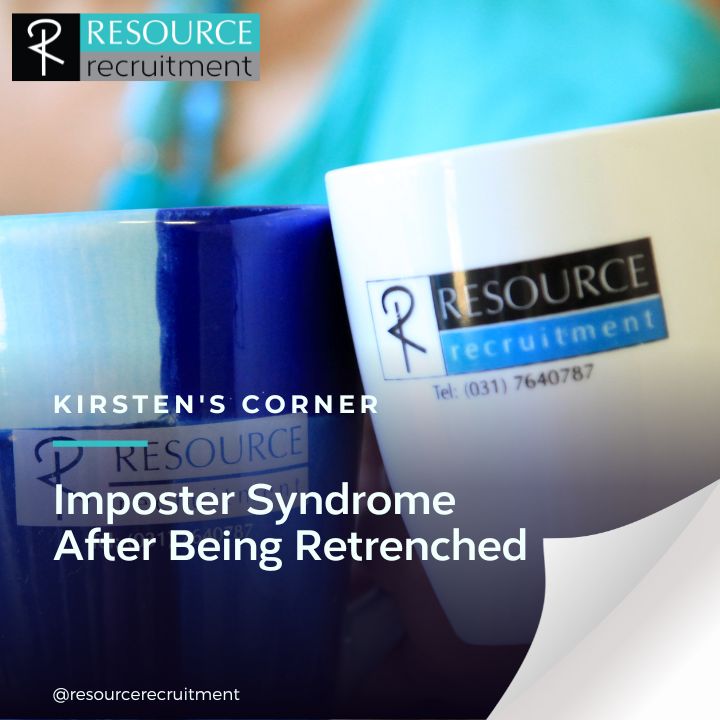
01 Mar Strategies for Overcoming Imposter Syndrome
Overcoming Imposter Syndrome After Being Retrenched
Losing a job can be a devastating experience, shaking the very foundation of one’s identity and self-worth. Amidst the challenges of coping with unemployment, individuals often grapple with feelings of inadequacy and self-doubt, a phenomenon commonly known as imposter syndrome. When compounded with the stress of being retrenched, imposter syndrome can have a profound impact on one’s mental health and ability to navigate the job search journey. Let’s delve into the complexities of imposter syndrome in the context of retrenchment and explore strategies for overcoming this psychological hurdle.
Understanding Imposter Syndrome:
Imposter syndrome is a psychological phenomenon characterized by persistent feelings of self-doubt, insecurity, and a fear of being exposed as a fraud, despite evidence of one’s competence and accomplishments. Individuals experiencing imposter syndrome often attribute their success to luck or external factors rather than their own abilities, leading to a pervasive sense of unworthiness and inadequacy.
Impact of Imposter Syndrome After Retrenchment:
Being retrenched can exacerbate feelings of imposter syndrome, as individuals may internalize the loss of their job as a reflection of their worth and capabilities. The sudden disruption in employment can shatter one’s sense of identity and purpose, triggering a downward spiral of negative self-talk and self-doubt. As they navigate the job search process, retrenched individuals may grapple with feelings of being undeserving or unqualified for new opportunities, hindering their ability to present themselves confidently to potential employers.
Strategies for Overcoming Imposter Syndrome:
Acknowledge and Validate Your Feelings: Recognize that feelings of self-doubt and insecurity are common reactions to the stress of retrenchment. Allow yourself to acknowledge and validate these emotions without judgment, understanding that they are a natural response to a challenging situation.
Challenge Negative Self-Talk: Challenge negative self-talk by reframing your thoughts and focusing on your strengths and past achievements. Remind yourself of your skills, experiences, and accomplishments, and recognize the value you bring to the table as a professional.
Seek Support and Connection: Reach out to friends, family, or a support network for encouragement and emotional support. Sharing your experiences with others who have gone through similar challenges can provide validation and perspective, reminding you that you are not alone in your struggles.
Set Realistic Expectations: Set realistic expectations for yourself during the job search process, recognizing that setbacks and rejections are a normal part of the journey. Celebrate small victories and milestones along the way, and be compassionate with yourself during moments of difficulty.
Focus on Continuous Learning and Growth: Embrace a growth mindset by viewing challenges as opportunities for learning and growth. Invest in professional development activities, such as online courses or networking events, to enhance your skills and expand your opportunities in the job market.
Practice Self-Care: Prioritize self-care activities that nourish your mind, body, and soul during times of stress. Engage in activities that bring you joy and relaxation, such as exercise, hobbies, or mindfulness practices, to replenish your energy and resilience.
Seek Professional Help if Needed: If feelings of imposter syndrome persist and significantly impact your well-being, consider seeking support from a mental health professional or counselor. Therapy can provide tools and strategies to address underlying issues and build resilience in the face of adversity.
Overcoming imposter syndrome after being retrenched requires patience, self-compassion, and resilience. By acknowledging and validating your feelings, challenging negative self-talk, seeking support and connection, setting realistic expectations, focusing on continuous learning and growth, practicing self-care, and seeking professional help if needed, you can navigate the challenges of unemployment with greater confidence and resilience. Remember that you are capable, worthy, and deserving of success, and that setbacks do not define your worth or potential. Embrace your journey of self-discovery and growth, and trust that brighter days lie ahead on your path to career fulfillment and success.



